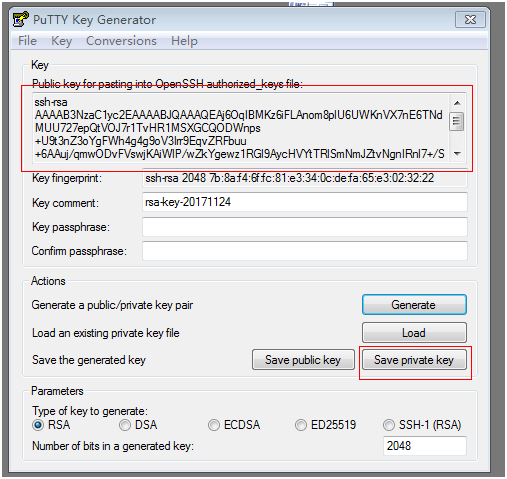Generate Ssh Key Gitlab Mac
The simplest way to generate a key pair is to run ssh-keygen without arguments. In this case, it will prompt for the file in which to store keys. Configure SSH client to find your GitLab private SSH in the server. As next step you need to establish that, when cloning from Gitlab, the deployment key should be used as authentication instead of an username and a password. For this you need to ensure that ssh-agent is enabled by running the following command: eval $(ssh-agent -s) Then you. Step 2 − Now login to your GitLab account and click on the Settings option. Step 3 − To create SSH key, click on the SSH keys tab at left side of the menu. Step 4 − Now go to C drive, you will see the file with.pub extension which was generated in the first step. Step 5 − Next open the key.pub file.
You generate an SSH key through macOS by using the Terminal application. Once you upload a valid public SSH key, the Triton Compute Service uses SmartLogin to copy the public key to any new SmartMachine you provision.
Joyent recommends RSA keys because the node-manta CLI programs work with RSA keys both locally and with the ssh agent. DSA keys will work only if the private key is on the same system as the CLI, and not password-protected.
First, login to your GitLab server and click the icon up in the upper right here, then go to Settings, and we'll go over to SSH keys on the left. If you already have an SSH key pair, you can just paste in your public key here. There are some instructions on this page, but it's actually pretty simple. The SSH stands for Secure Shell or Secure Socket Shell used for managing the networks, operating systems and configurations and also authenticates to the GitLab server without using username and password each time. You can set the SSH keys to provide a reliable connection between the computer. You can generate an SSH key pair in Mac OS following these steps: Open up the Terminal by going to Applications - Utilities - Terminal In the terminal, use the following command to start the key generation.
About Terminal

Terminal is the terminal emulator which provides a text-based command line interface to the Unix shell of macOS.
To open the macOS Terminal, follow these steps:
- In Finder, choose Utilities from the Applications folder.
- Find Terminal in the Utilities listw.
- Open Terminal.
The Terminal window opens with the commandline prompt displaying the name of your machine and your username.
Generating an SSH key
An SSH key consists of a pair of files. One is the private key, which should never be shared with anyone. The other is the public key. The other file is a public key which allows you to log into the containers and VMs you provision. When you generate the keys, you will use ssh-keygen to store the keys in a safe location so you can bypass the login prompt when connecting to your instances.

To generate SSH keys in macOS, follow these steps:
Enter the following command in the Terminal window.
This starts the key generation process. When you execute this command, the
ssh-keygenutility prompts you to indicate where to store the key.Press the ENTER key to accept the default location. The
ssh-keygenutility prompts you for a passphrase.- Type in a passphrase. You can also hit the ENTER key to accept the default (no passphrase). However, this is not recommended.
You will need to enter the passphrase a second time to continue.
After you confirm the passphrase, the system generates the key pair.
Your private key is saved to the id_rsa file in the .ssh directory and is used to verify the public key you use belongs to the same Triton Compute Service account.
| Never share your private key with anyone! |
|---|
Your public key is saved to the id_rsa.pubGenerate ssh_host_dsa_key. ;file and is the key you upload to your Triton Compute Service account. You can save this key to the clipboard by running this:
Importing your SSH key
Now you must import the copied SSH key to the portal.
- After you copy the SSH key to the clipboard, return to your account page.
- Choose to Import Public Key and paste your SSH key into the Public Key field.
- In the Key Name field, provide a name for the key. Note: although providing a key name is optional, it is a best practice for ease of managing multiple SSH keys.
- Add the key. It will now appear in your table of keys under SSH.
Troubleshooting
Generate Ssh Key Windows
You may see a password prompt like this:
This is because:
Generate Ssh Key Aix
- You did not enter the correct passphrase.
- The private key on your Macintosh (
id_rsa) does not match the public key stored with your Triton Compute Service account. - The public key was not entered correctly in your Triton account.
Generate Ssh Key Gitlab Mac Pro
What are my next steps?
Right in the portal, you can easily create Docker containers, infrastructure containers, and hardware virtual machines. /all-types-of-cryptography-need-random-numbers-for-key-generation.html.
Generate Ssh Key Putty
In order to use the Terminal to create instances, set up triton and CloudAPI as well as the triton-docker commandline tool.